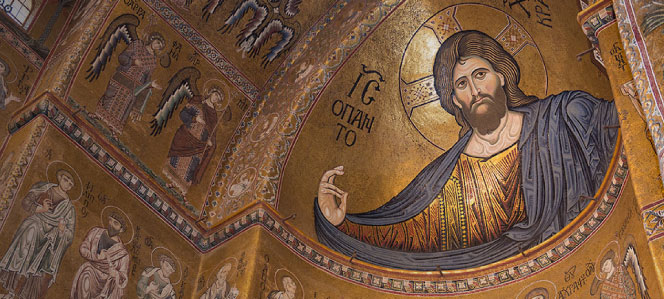Living according to the tradition of the Catholic way of life requires much from those who decide to adhere. Consistence, constancy, recognition of the Divine will, and a thrust toward a life of heroic virtue, necessitates near godly willpower and reliance on grace. Fickle desires such as languor and mediocrity most surely fall remote to a sincerely Catholic worldview. As the famous Frenchman Leon Bloy vociferously expressed, “Any Christian who is not a hero is a pig.” Though the satirical environment of Bloy’s tract allows for some interpretation and context, the basis holds true. With the inconceivable amount of gifts, graces, and talents given to those blessed to partake in the sacramental life of a Catholic, the bar is much higher for us, and this elevated standard holds those under her flagship superior than the vast majority of the rest of humanity. Not only are we asked, nay commanded to do all things short of sin to become a saint and bring others into this profound mystery we enjoy in the mystical union of Christ and His beloved Bride, the Church.
A grievance of mine as a full-time director of catechesis and evangelization of a Catholic parish is when people hold onto a prosaic mentality of things involving faith. I also find that with many this same frame of mind spills into their daily living. The oft repeated phrase, “well, he’s a good person” as a justification for decadence and wrong living is enough to drive one mad. Of course he’s good, God created Him, but he’s meant for so much more. We aren’t just called to live our vocation; we are commanded to perfect it. We aren’t just patted on the head as if some sort of pitiful jest of compliance is going to earn us salvation. Rather, we are bid to become shining lights in a tainted world of moss-covered wishes. Souls who burnish the darkness we are surrounded by. One cannot fully grasp the reality of our soiled folly until one comes in contact with the brilliant rays of celestial virtue. Mercy, love, hope; these are the battalions from which we walk arm in arm with our fellow man, not in a horizontal manner but rather, with eyes evident on the heights of human potential, we shroud this world with the excellence of the Christian modality. However, let’s be careful not to overtly spiritualize this message. How we present ourselves in the physical world matters. Though we may not all be rich, be proud of what you have and who you are by presenting a life of grandiosity. Take care of yourself physically, mind your possessions and keep them clean, take notice of how you present yourself to the world, because these exterior realities can and should represent the interior reality of a soul in love with its Creator.
As Catholics we must distinguish ourselves while not ostracizing ourselves within the world. In the evangelistic clarion call of leading with beauty, the first illustration of that beauty is the way we live our lives. If we are no different than how the world lives the message of Christ remains in the shadows. Rather if we proudly live out the Christian significance of dissimilarity, the astonishment of who God is rings loud. Take for example the large family. If you were of the mindset we see in many today of children as a burden and you saw a large family looking as if they were two seconds from losing their minds, you would venerate the great minds who invented birth control. However, and I find this in my own experience, if you are dressed nice, your hair is neat, you have a smile on your face, and someone asks you, ‘are those all yours?’, when you answer with a loving glance at your spouse and a resounding, ‘Absolutely!’ the mentality of the interlocutor is much different and lends itself to curiosity rather than disdain.
The same goes for the arts, so often we glean back to the age of the medieval church to find inspiration of excellence, and rightly so. However, what one finds in the Catholic intellectual tradition on the 20th century many of the great minds who were not only involved in the machinations of philosophic and theological interpretation; they were poets, novelists, artists, creatives. They knew that in order to reach the populous at large, there would necessitate a bidding to create culture, and not just ‘good enough’ culture but that which would resound through the generations to come. The same rings true for us today in our professions, in our relationships, in our spiritual life, and in our physical being. If we are to allow being a Catholic to associate itself with that which is less than desirable we let the message of Nietzsche, Comte, and Feuerbach, who preached that God is a Being who disrupts and detests human flourishment, to be the victor.
When Jesus admonished those who fast and look “gloomy like the hypocrites”, he was also admonishing us today who allow mediocrity in our lives and the life of the Church. Mediocrity in our personal lives is a crime against our Creator. Lackluster spiritual lives are as Jesus Himself accentuated earns you being spit out from the body of Christ. If you are a businessman, be a great businessman. If you are a catechist, be an inspiringly holy one. If you are a priest, a mother, or a leader of any kind, never settle for anything less than a vision of Jesus Himself. It’s not that we ignore our weaknesses; rather we accept that we have them and do everything in our power to overcome them by building human virtue and inviting our Lord to take the helm. Perhaps Leon Bloy was right on both accounts when he later wrote, “There is only one misery . . . not to be saints.”
